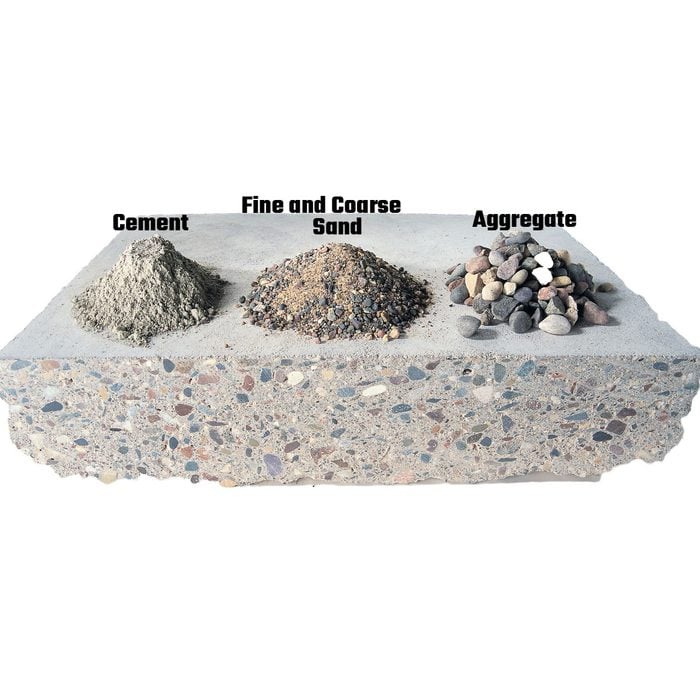Premium Concrete Services: Sturdy Solutions for Your Building Requirements
Premium Concrete Services: Sturdy Solutions for Your Building Requirements
Blog Article
Introducing the Eco-Friendly Advantages of Making Use Of Recycled Concrete in Lasting Construction Practices
In the realm of sustainable building techniques, the use of recycled concrete stands as an essential yet commonly underestimated resource. Beyond its standard applications, recycled concrete deals a myriad of environment-friendly advantages that extend much past the boundaries of conventional building materials.
Ecological Advantages
By including recycled concrete into construction practices, there is a considerable reduction in the demand for brand-new raw products, leading to conservation of natural resources. Furthermore, the usage of recycled concrete reduces the amount of waste being sent to landfills, therefore decreasing environmental contamination and alleviating the strain on land fill capabilities (Concrete).

Additionally, the production of conventional concrete is a considerable source of carbon exhausts due to the energy-intensive procedure of cement manufacturing. In contrast, recycled concrete has a lower carbon impact as it minimizes the need for brand-new concrete production. This reduction in carbon exhausts adds to mitigating climate modification and sustains lasting building practices. In general, the ecological advantages of using recycled concrete are considerable and play an essential role in promoting environmentally friendly construction techniques.
Cost-Efficiency
Accomplishing cost-efficiency is a critical factor to consider when evaluating the use of recycled concrete in building and construction projects. One of the essential benefits of making use of recycled concrete is its cost-effectiveness contrasted to standard concrete.
Furthermore, using recycled concrete can cause financial savings in garbage dump expenses by diverting concrete waste from disposal sites. This not just minimizes the ecological impact yet also removes the expenses connected with waste elimination. The durability and efficiency of recycled concrete are comparable to conventional concrete, making certain that cost financial savings do not compromise the quality of the building.
Longevity and Strength
Thinking about the substantial cost-efficiency advantages of using recycled concrete, it is essential to analyze its resilience and toughness in construction applications. Recycled concrete deals similar, if not superior, longevity and toughness properties to traditional concrete. Via improvements in handling methods and top quality control, recycled concrete can satisfy or surpass the efficiency requirements of traditional concrete. The procedure of reusing concrete includes crushing, sorting, and evaluating old concrete to create aggregates that can be made more use of in new building projects. These recycled accumulations can offering adequate compressive strength, sturdiness, and lasting efficiency.

Waste Decrease
Reliable waste reduction methods play a crucial duty in the sustainable use of resources within the building industry. Waste reduction is an essential benefit that contributes significantly to ecological preservation when it comes to making use of recycled concrete. Conventional building and construction techniques often generate substantial amounts of waste, particularly in the form of concrete rubble from demolition sites. By incorporating recycled concrete into construction jobs, this waste is repurposed and diverted from garbage dumps, lowering the overall environmental impact of building activities.
In addition, the use of recycled concrete can lead to cost financial savings for building and construction jobs, as it is frequently much more inexpensive than sourcing and delivering brand-new products - Concrete. In verdict, waste reduction via the utilization of recycled concrete is a crucial component of sustainable construction techniques that profits both the setting and the building and construction sector as a whole.
Power Preservation
When it comes to view publisher site utilizing recycled concrete in look here building, considerable energy savings are achieved contrasted to traditional concrete manufacturing. The process of creating recycled concrete entails crushing and reusing existing concrete materials, which takes in less energy than mining, handling, and transferring raw materials for brand-new concrete production.
Conclusion
To conclude, the use of recycled concrete in sustainable building and construction methods offers countless environmental advantages, cost-efficiency, resilience, strength, waste decrease, and energy preservation. By including recycled concrete into construction tasks, we can contribute to an extra ecologically pleasant and lasting future. It is important for the building and construction industry to focus on using recycled materials to aid decrease the ecological impact of building and construction activities.
One of the crucial benefits of utilizing recycled concrete is its cost-effectiveness contrasted to typical concrete.Additionally, the usage of recycled concrete can lead to cost savings in landfill expenses by diverting concrete waste from disposal websites. The longevity and efficiency of recycled concrete are similar to traditional concrete, making certain that expense savings do not compromise the high quality of the construction.

Report this page